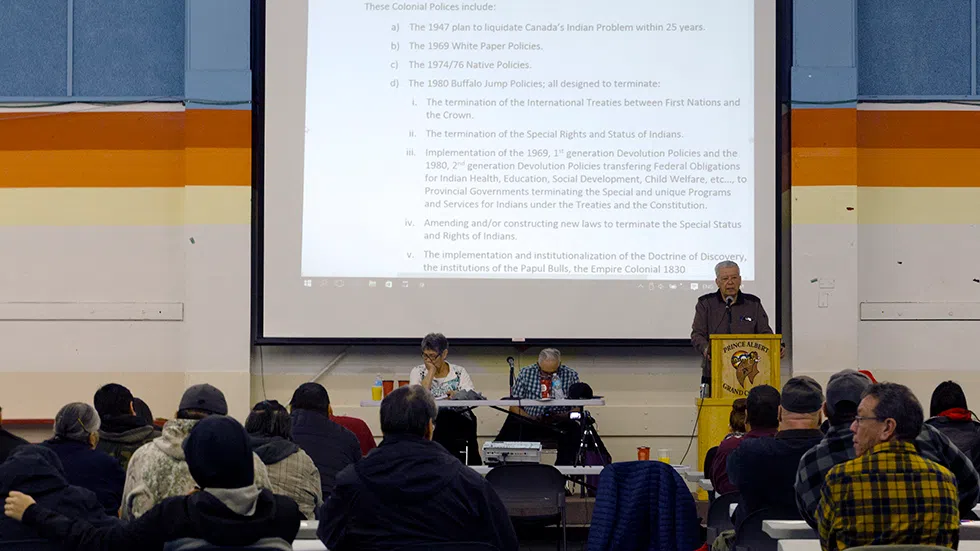
PAGC Conference: The code of silence
During a gathering hosted at the Senator Allen Bird Memorial Centre, Indigenous leaders and youth are learning about the treaties their ancestors signed into and the effect they have today.
Federation of Sovereign Indigenous Nations Senator Sol Sanderson says some of these documents enforce “the code of silence” among First Nations in Canada. Sanderson said it’s time to break the code of silence and take back the sovereignty of Indigenous peoples.
“We need to implement our sovereignty. We have inherent rights and inherent sovereignty as granted to us by the Creator,” Sanderson said.
When Sanderson talks about sovereignty, he speaks about it on a large scale. From an Indigenous justice system to Indigenous driven education systems and economic relations, Sanderson said its time to take back every sector of governance.

